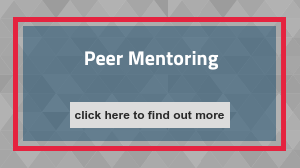Coaching & Mentoring at ENU
At Napier we offer a variety of development tools, coaching and mentoring are development approaches based one-to-one conversations to enhance your skills, knowledge, or work performance.
While the skills to be a coach and a mentor can be interchangeable there is a difference between the two.

What is coaching?
A partnership that supports successful leaders to become even more effective. 'Blind spots' in leadership competencies can develop.
Effective coaches emphasise the unique talents and abilities of their coachee as well as emphasise their coachee's potential.
Coaching is about challenging the leader and supporting the leader to change any behaviour/s that are not working for them and supporting them to be open to change.
When is a coach required?
Formal professional coaching is carried out by a qualified coach who will work with clients to improve their effectiveness and performance and will help them to achieve their full potential. This relationship is generally short in its nature ranging from 6 to 9 months.
What is Mentoring?
Mentoring in the workplace tends to describe a relationship in which a more experienced colleague shares their knowledge to support the development of another member of staff. A key distinction is that mentoring relationships can be longer term than coaching arrangements.
Mentoring relationships work best when they move beyond the directive approach of a senior colleague ‘telling it how it is’, to one where both parties learn from each other. An effective mentoring relationship is a learning opportunity for both participants, encouraging sharing and learning across generations and/or between roles.
When is a mentor required?
At any time during your career. A mentor can be anyone, but internally is an equivalent or greater grade to the mentee and is recognised at being very good in a particular skillset or has the knowledge and experience the mentee hopes to learn from.
Additional Resources
.png)
